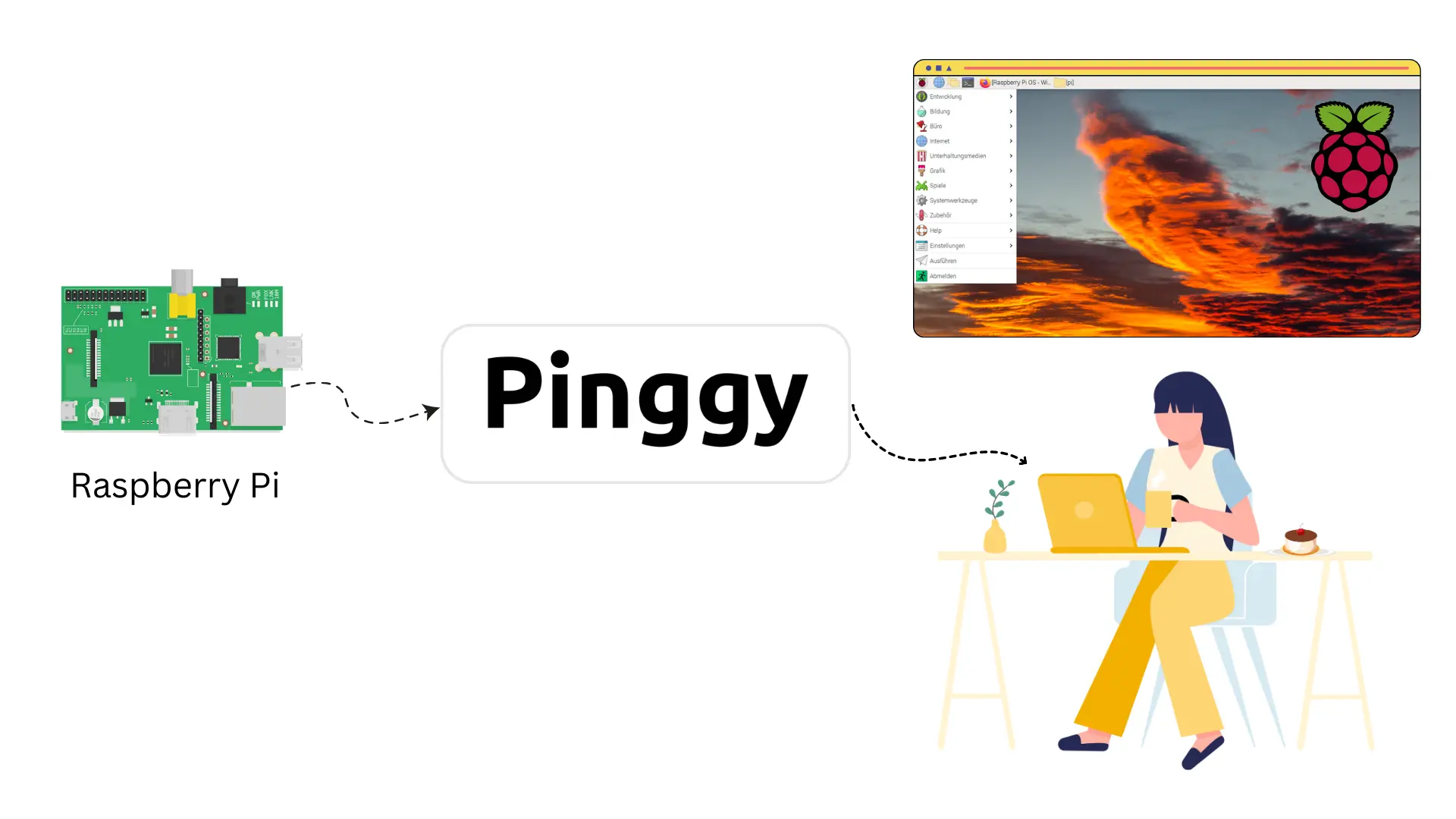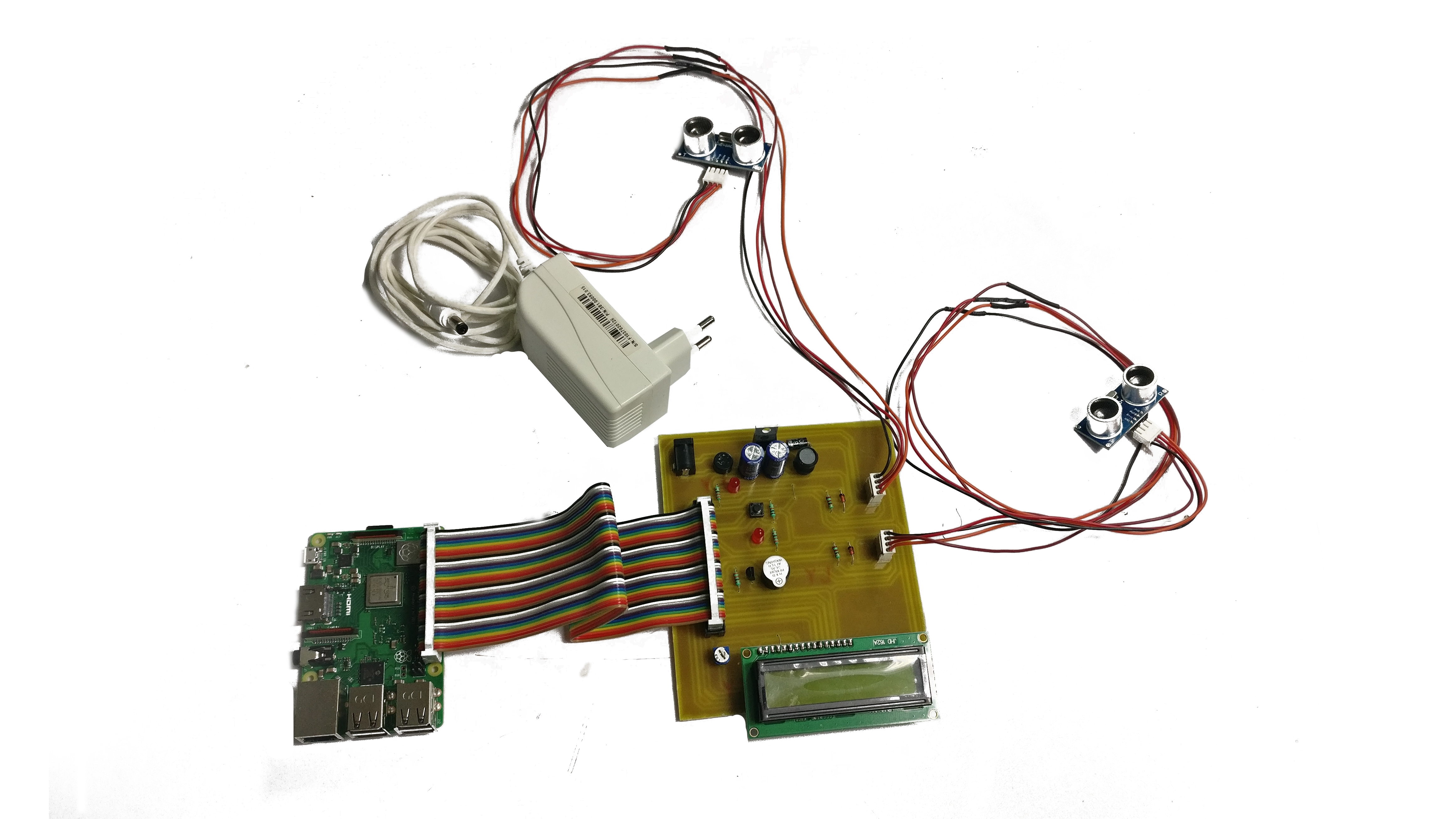Best Remote SSH IoT Platform For Raspberry Pi: Your Ultimate Guide
When it comes to IoT development, finding the best remote SSH IoT platform for Raspberry Pi is like searching for the holy grail of tech solutions. Whether you're a hobbyist tinkering with smart home projects or a professional building scalable IoT systems, the right platform can make all the difference. Imagine having seamless remote access, robust security, and easy integration—all in one package. That's what we're diving into today, folks.
But hold up, before we dive deep into the nitty-gritty, let’s break down why this matters. The Internet of Things (IoT) is booming, and Raspberry Pi has become the go-to device for many developers. But connecting your Pi to the world isn’t as simple as plugging in a USB cable. You need a reliable platform that can handle remote SSH connections without breaking a sweat.
In this guide, we’ll explore the top platforms that fit the bill, discuss their features, and help you decide which one works best for your project. So, grab your favorite coffee or snack, and let’s get started on this tech adventure!
- Hd Hub Bollywood Movies Your Ultimate Streaming Playground
- Movierules Your Ultimate Guide To Mastering The Movie Universe
Table of Contents
- Introduction
- What Is SSH?
- Raspberry Pi Overview
- Top Remote SSH IoT Platforms for Raspberry Pi
- Key Features to Look For
- Security Considerations
- Comparison of Platforms
- Tips for Choosing the Best Platform
- Real-World Use Cases
- Conclusion
What Is SSH?
Before we jump into the platforms, let’s take a quick detour to understand SSH. SSH stands for Secure Shell, and it’s basically a protocol that lets you remotely connect to and manage devices over a network. It’s like a secret handshake that ensures your data stays secure while traveling across the internet.
For Raspberry Pi users, SSH is essential if you want to control your device from anywhere in the world. Without it, you’d have to physically sit in front of your Pi every time you wanted to make changes. Who’s got time for that?
Now, here’s the kicker: not all SSH platforms are created equal. Some offer more features, better security, or easier setup than others. That’s why we’re here—to help you navigate through the options and find the one that suits your needs.
- Miriam Cruz The Rising Star Whos Turning Heads In The Music Scene
- Movierulz2 Your Ultimate Destination For Latest Movies And Entertainment
Raspberry Pi Overview
Raspberry Pi has taken the tech world by storm. These tiny, affordable computers have become the backbone of countless IoT projects. From home automation to industrial applications, Raspberry Pi is everywhere.
But what makes it so special? For starters, it’s incredibly versatile. With a wide range of models and accessories, you can customize your setup to fit almost any project. Plus, the community support is unmatched. Need help? Chances are someone else has already figured it out.
However, managing a Raspberry Pi remotely can be a challenge. That’s where remote SSH IoT platforms come in. They provide the tools you need to access your Pi from anywhere, whether you’re across the room or across the globe.
Top Remote SSH IoT Platforms for Raspberry Pi
Platform 1: BalenaCloud
Let’s kick things off with BalenaCloud, a powerhouse in the world of IoT development. This platform offers a ton of features that make remote SSH a breeze. One of its standout capabilities is the ability to manage multiple devices from a single dashboard. Talk about convenience!
Here’s a quick rundown of what BalenaCloud brings to the table:
- Seamless remote access via SSH
- Device management tools
- Automated updates and rollbacks
- Support for a wide range of hardware, including Raspberry Pi
Plus, BalenaCloud integrates with popular services like Docker, making it a great choice for developers who want to containerize their applications.
Platform 2: Resin.io
Next up, we have Resin.io, another top contender in the remote SSH IoT space. While Resin.io has since rebranded to BalenaCloud, its legacy lives on as a robust platform for managing IoT devices.
What makes Resin.io (or BalenaCloud) so appealing is its focus on simplicity. You don’t need to be a tech wizard to set up remote access for your Raspberry Pi. Just follow the straightforward instructions, and you’ll be up and running in no time.
Some key features include:
- Web-based interface for easy management
- Secure SSH connections
- Real-time monitoring of device performance
It’s worth noting that Resin.io’s transition to BalenaCloud means you’ll get access to even more features and improvements as the platform evolves.
Platform 3: OctoPrint
Now, let’s talk about OctoPrint, a platform specifically designed for 3D printing enthusiasts. While it may not be as versatile as BalenaCloud or Resin.io, it’s still a great option for Raspberry Pi users who want to manage their 3D printers remotely.
Here’s why OctoPrint deserves a spot on this list:
- Easy-to-use interface for controlling 3D printers
- Support for Raspberry Pi hardware
- Real-time monitoring of print jobs
Whether you’re printing a small object or a large-scale project, OctoPrint ensures you stay in control every step of the way.
Key Features to Look For
When evaluating remote SSH IoT platforms for your Raspberry Pi, there are a few key features you should keep in mind. These will help you determine which platform aligns best with your project goals:
- Security: Make sure the platform offers robust encryption and authentication methods to protect your data.
- Scalability: If you plan to manage multiple devices, choose a platform that can grow with you.
- Ease of Use: A user-friendly interface can save you a lot of time and frustration.
- Community Support: Platforms with active communities tend to have better documentation and faster issue resolution.
By prioritizing these features, you’ll increase your chances of finding a platform that meets all your needs.
Security Considerations
Security is a big deal when it comes to remote SSH IoT platforms. After all, you’re giving others access to your devices over the internet. That’s why it’s crucial to choose a platform that takes security seriously.
Here are some security best practices to keep in mind:
- Use strong, unique passwords for all your devices.
- Enable two-factor authentication (2FA) whenever possible.
- Regularly update your software to patch vulnerabilities.
- Monitor your devices for suspicious activity.
By following these guidelines, you can minimize the risk of unauthorized access and keep your Raspberry Pi safe.
Comparison of Platforms
Now that we’ve covered the top platforms, let’s compare them side by side. Here’s a quick summary of their strengths and weaknesses:
| Platform | Strengths | Weaknesses |
|---|---|---|
| BalenaCloud |
|
|
| Resin.io |
|
|
| OctoPrint |
|
|
As you can see, each platform has its own set of pros and cons. It’s up to you to decide which one fits your specific requirements.
Tips for Choosing the Best Platform
Selecting the right remote SSH IoT platform for your Raspberry Pi doesn’t have to be a daunting task. Here are a few tips to help you make an informed decision:
- Define Your Needs: Start by identifying what you want to achieve with your project. Are you building a smart home system, a weather station, or something else entirely?
- Test Before Committing: Many platforms offer free trials or community editions. Take advantage of these to see how the platform performs before investing in a paid plan.
- Read Reviews: Check out what other users have to say about the platforms you’re considering. Their experiences can provide valuable insights.
With these tips in mind, you’ll be well-equipped to choose the best platform for your Raspberry Pi projects.
Real-World Use Cases
Let’s wrap things up by looking at some real-world use cases for remote SSH IoT platforms and Raspberry Pi. These examples will give you a better idea of how these tools can be applied in practice:
- Smart Home Automation: Control lights, thermostats, and security systems from anywhere using a remote SSH connection.
- Environmental Monitoring: Set up sensors to track temperature, humidity, and air quality, then access the data remotely for analysis.
- Industrial IoT: Monitor and manage factory equipment in real-time, ensuring optimal performance and reducing downtime.
The possibilities are endless, and the right platform can help bring your ideas to life.
Conclusion
And there you have it, folks—a comprehensive guide to the best remote SSH IoT platforms for Raspberry Pi. Whether you choose BalenaCloud, Resin.io, OctoPrint, or another platform, the key is to find one that aligns with your project goals and technical requirements.
Remember, security should always be a top priority. By following best practices and staying vigilant, you can enjoy the benefits of remote access without compromising your devices.
So, what are you waiting for? Dive into the world of IoT and see where it takes you. And don’t forget to share your experiences in the comments below. Who knows? You might just inspire someone else to embark on their own tech journey!



Detail Author:
- Name : Adrianna Baumbach PhD
- Username : qjacobi
- Email : osbaldo.goyette@hotmail.com
- Birthdate : 1988-09-01
- Address : 30949 Kub Pass North Casimerland, AZ 98429
- Phone : (386) 974-5013
- Company : Torp PLC
- Job : Machine Operator
- Bio : Rerum perferendis repellendus aut. Quas dolorem enim repudiandae sit saepe. Voluptatem suscipit autem nostrum ex. Sed laboriosam non vel et.
Socials
linkedin:
- url : https://linkedin.com/in/lorenza_bernier
- username : lorenza_bernier
- bio : Aperiam et eos at facere et quam.
- followers : 3313
- following : 1437
instagram:
- url : https://instagram.com/lorenza1160
- username : lorenza1160
- bio : Molestiae dolores suscipit numquam dolore. Sit aliquid dolore esse ad unde.
- followers : 523
- following : 346
tiktok:
- url : https://tiktok.com/@bernier2008
- username : bernier2008
- bio : Ea sit consectetur facilis tempore corporis explicabo eum.
- followers : 6746
- following : 1407